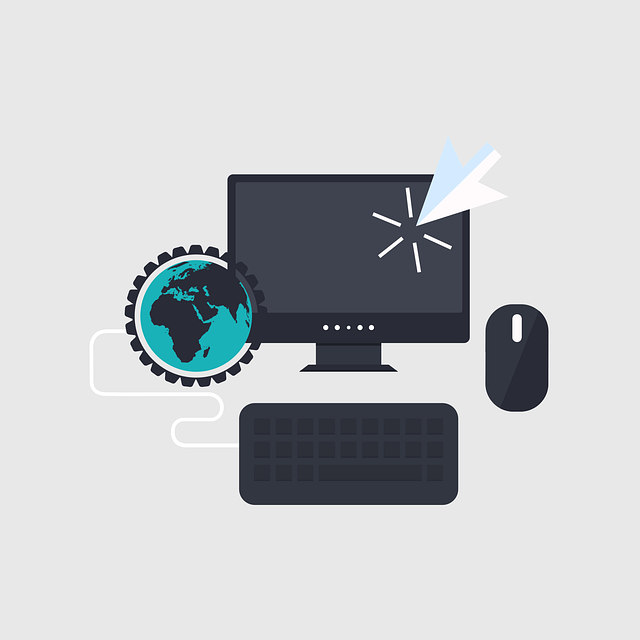AI coaching systems are transforming auto repair industries by leveraging machine learning to streamline processes, reduce errors, and increase productivity. These algorithms automate diagnostics, parts identification, and provide real-time recommendations based on historical data. By analyzing trends in vast datasets, AI anticipates parts shortages, negotiates better deals, and offers accurate quotes. In the digital era, AI coaching enhances efficiency, reduces downtime, improves customer satisfaction through instant support, and ultimately boosts automotive repair profitability.
In today’s competitive automotive landscape, businesses must embrace AI optimization strategies to unlock new levels of profitability. This article explores three key areas: how AI can streamline repair processes, develop effective training models, and elevate services to maximize efficiency and customer satisfaction. By integrating AI coaching techniques, auto businesses can enhance their operational productivity, reduce costs, and deliver exceptional experiences, ultimately driving growth and success.
- Unlocking Profitability: AI's Role in Streamlining Automotive Repair Processes
- Training the Machines: Developing Effective AI Coaching Models for Auto Businesses
- Maximizing Efficiency: Implementing AI to Elevate Automotive Repair Services and Customer Satisfaction
Unlocking Profitability: AI's Role in Streamlining Automotive Repair Processes

AI has the potential to unlock significant profitability for auto businesses by streamlining their repair processes. By leveraging machine learning algorithms, auto shops can automate routine tasks such as diagnostics, parts identification, and inventory management, reducing manual effort and errors. This efficiency boost allows technicians to focus on more complex repairs and increases overall shop productivity.
AI coaching systems can provide real-time recommendations to mechanics based on historical data and best practices. These intelligent systems learn from each repair instance, continuously improving their accuracy and suggesting optimal solutions. Moreover, AI can analyze vast amounts of data to identify trends and patterns, helping businesses anticipate parts shortages, negotiate better supplier deals, and offer more accurate quotes to customers, ultimately enhancing automotive repair profitability.
Training the Machines: Developing Effective AI Coaching Models for Auto Businesses

In the realm of auto businesses, optimizing operations with Artificial Intelligence (AI) has emerged as a game-changer. AI coaching models play a pivotal role in training machines to enhance automotive repair profitability. These models are designed to teach AI algorithms specific tasks related to vehicle diagnostics, parts identification, and efficient repair strategies. By feeding vast amounts of data, including historical repair records, technical manuals, and industry trends, these models learn to make accurate predictions and recommendations.
Effective AI coaching involves continuous learning and adaptation. Auto businesses should regularly update their training datasets with new information, ensuring the AI system stays current with evolving vehicle technologies and repair techniques. This dynamic approach allows the AI to provide tailored solutions, improving overall efficiency, reducing errors, and ultimately boosting profitability.
Maximizing Efficiency: Implementing AI to Elevate Automotive Repair Services and Customer Satisfaction

In today’s digital era, implementing Artificial Intelligence (AI) has emerged as a game-changer for auto businesses, especially in maximizing efficiency and enhancing customer satisfaction. AI coaching can optimize automotive repair services by streamlining workflows, reducing downtime, and improving diagnostic accuracy. For instance, AI algorithms can analyze vast amounts of data to identify patterns and predict potential vehicle issues, enabling technicians to proactively address problems before they escalate.
By leveraging machine learning models for predictive maintenance, auto businesses can significantly reduce repair times and increase profitability. Additionally, natural language processing (NLP) chatbots can provide instant customer support, answering common queries and offering real-time updates on service status. This not only improves customer experience but also frees up human agents to focus on more complex tasks, fostering a more efficient and profitable automotive repair operation.
AI optimization strategies, particularly through effective AI coaching models, can significantly enhance the profitability of auto businesses. By streamlining repair processes and maximizing efficiency, these technologies not only reduce operational costs but also elevate customer satisfaction. Unlocking these benefits requires a strategic approach to implementing AI, focusing on both technical advancements and customer-centric innovations. With continuous training and improvement, AI coaching can become a powerful tool for auto businesses to stay competitive in the market and deliver exceptional service.
